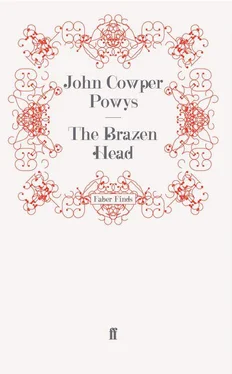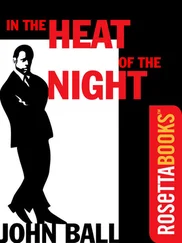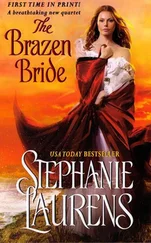Old Dod now permitted his voice to die away in the midst of a sentence and looked enquiringly at little Bet. The owner of Cheiron had the wit to interpret this quick glance correctly. “Like all orators,” he thought, “the old fellow is hopelessly dependent on women for every practical move he makes, and as the only female here is that ragged little girl, he daren’t move a step without appealing to her!”
It was at this point that Spardo, who understood small girls better than he understood either religion or revolution, exchanged a smile and a wink with little Bet that arranged it all.
“The man wants a word with you, grand-dad,” she whispered to Dod Pole; and the three of them retreated beneath the pine-trunks. Once out of sight of the Friar-General and the Manor bailiff, Cheiron’s owner produced one of his great gold pieces and explained its worth in relation to the coinage of Britain to old Dod.
“Won’t that be enough and to spare, my friend,” he said, “to keep you and your family till next winter?”
Again he caught old Dod Pole glancing at little Bet. And again it was clear to him that the child’s vigorous series of emphatic nods settled the matter. “Well then,” he commanded in the nearest approach to an official dismissal he could assume, “off with you! And put that piece of gold”—and here he came close to the old man and felt his sides and hips with his two hands—“in there l” he added, when he had discovered a secure little receptacle in Dod Pole’s innermost garment, already containing a few coins; and without a glance at their retreating figures he rejoined Cheiron and the horse’s two companions.
“I’ve been explaining to his Reverence,” announced Spardo to the bailiff, “that, when he reaches Lost Towers, he’d better take no notice of what Baron Maldung may have to say, and concentrate his attention upon any definite information he can get out of Lady Lilt. I don’t know, I’m sure, master bailiff, if you share my view that in all these affairs it’s wisest to go straight to the woman, if there is a woman in the case.”
The bailiff of Roque looked from the General of the Franciscan Friars to the horse with the growing appearance of two heads.
“You’d better,” he said, “hurry your beast on, if you’re going to see anything of any of the three of them tonight! It gets dark at Lost Towers, I understand, before the proper time! At least that’s what they say, and I’m ready to believe anything of that awful place! For myself I’ll never be caught going near it. But they do tell me your Reverence has the reputation of being a great Saint, and my missus do say every time I put head to pillow—‘Randy,’ she do say — that’s short for Randolph you understand—‘hast thee said thee’s prayers straight and proper to the Blessed Saint Aldhelm?’
“And when I do say to she: ‘Bain’t Prior Bog of Bumset as good a church-lord as any old Saint?’ she’s answer to I is allus the same: ‘Bog be Bog and Bumset be Bumset,’ she do say,’ but when thee do pray to They Above, ‘tis a very different style of Holy Man thee dost need for thee’s pass to Salvation!’
“But that bain’t all my missus do say when head and pillow do come together. ‘Why do us pray,’ her says, ‘when Night be come and Dark do cover all? Because the Devil be six times nearer to we at such times! Beware of Darkness, Randy,’ she do say. ‘Call on Saint Aldhelm to keep ‘ee calm and cosy in the lap of the Blessed Virgin, else thee may go wandering down one of they girt dark roads that go anywhere and lead nowhere for ever and ever and ever and ever!’ So my advice to your Reverence, and to thee too, Master Spardo, is to hurry on as fast as may be, lest Sun be gone when Lost Towers be come!”
And with that, and a swift look upwards, as if at any moment some vast Devil’s bird might carry off the sun in its beak and darken the earth with its wings, Randolph Sygerius, the new bailiff, marched off, walking like a soldier who needs all the strength of will he possesses to accept the fact that in Roque Manor day is followed by night.
The deformed Cheiron however hadn’t gone on for more than twenty minutes, with Bonaventura silent on his back and Spardo silent at his side, when they came to a track that crossed the one they were following, and there, just as if he had been purposely awaiting them, astride of his tall war-horse till he had grown as sleepy as the plodding Spardo, was none other than the Baron — not the Baron of Lost Towers, but of Castle Cone, that cheerful stronghold on the southern side of Roque Fortress, inhabited by the Boncor family.
Baron Boncor was a big strong man, with a thick fair beard and as placid and friendly a cast of countenance as any pair of agitated travellers could wish to meet. Human nature is such, however, that when we have “worked ourselves up”, as we say, to expect one thing, and find instead of it not only something quite different, but something that is the direct opposite of what we’ve expected, even if what we’ve found is pleasing to us beyond hope, our immediate reaction — such is our pride in the way we’ve mentally prepared ourselves to meet this encounter — is a curious shock of disappointment. We might just as well have never bothered to prepare for battle at all!
But Baron Boncor had in him as much commonsense as good nature. He greeted this queer-looking trinity of unusual explorers with an instinctive courtesy that set them at their ease at once.
“Welcome to our dark forests, your Eminence!” he began. “Though I fear after your sunlit Italy you’ll have to be careful to keep your cloak about you. And you too, Master Spardo, for through my wife’s friendship with her good neighbour Lady Val, I’ve heard all about you and your strange steed here! Cheiron you call him, don’t you? They talk a lot about him in the Fortress stables when I take my old Basileus there for a rub down. Give Cheiron a kiss, Basileus! No, no, a real proper kiss! That’s the boy! I warrant he’s not so much younger than you are; and who can tell? You may, if you kiss each other often enough, turn into a real Centaur as he seems to be turning. But if you do—”
He was interrupted by the appearance of the most amazing human figure that any of them, man or beast, had ever seen in his life before. This personage came dancing into their midst, and not one of them could take his eyes off him for a second when once he appeared. He inhaled and sucked in and tried to drain up the essence of every living soul upon that spot, whether such a soul belonged to a man or an animal or a bird or a reptile or a toad or a worm or an insect. None of the three human beings present at that cross-track in the forest had a flicker of doubt as to who this intruder was, who thus came dancing into the midst of them.
It was Baron Maldung himself, the Lord of Lost Towers! Well, they had come to seek him. They had come to visit him. And here he was! Beneath his tunic and his breeches Baron Maldung was clothed in only two garments; but these two garments literally covered him from head to foot — that is to say, from half-way down his neck to the soles of both his feet. The under-garment was of thick, warm, white sheep’s wool; while the garment that covered it was of thin delicate coal-black satin.
Every movement the Baron made was like a step in a dance that he knew by heart: and as he fluttered from one to another of these five beings, two super-intelligent horses, and three rather unusual men, the lightly-blowing wind as it opened his tunic revealed the fact that this black satin covering he wore above his sheep’s-wool under-garment was an attempt, almost a pathetic attempt, on the part of this demonic man to round off his ungainly limbs into a sort of grace, at any rate into a grace that sheep’s wool alone could not give.
Читать дальше











